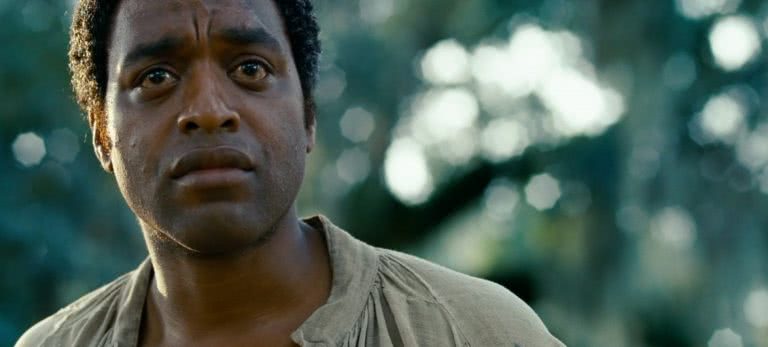How can you write about slavery in 300 words?
12 Years A Slaveis a brutal, unsparing, beautifully woven and deeply humane ode to hardship. It is no fun whatsoever, excepting maybe the odd, solitary chuckle through mountains of discomfort, as we watch freeman Solomon Northup (Chiwetel Ejiofor) kidnapped, sold into slavery, and undergo disgraceful treatment along with his companions. Solomon’s owners as he moves from estate to estate are often sadistic, ignorant, and cruel, but sometimes – and more worryingly – just decent people who use people as livestock simply because it was a social norm.
There are incredible performances throughout – Ejiofor is simply undeniable as the lead, so full of heart, warmth, fight and nuance; andMichael Fassbenderis possibly even better as an utterly remorseless, unrepentant ‘slave-breaker’.Paul Danoplays the kind of blood-curdling, cowardly role we’ve come to expect from him afterThere Will Be Blood, andBrad Pittlends some very Brad-Pittish compassion to his role as an anti-slavery proponent in the South.
Steve McQueen’s aesthetic is exquisite as usual – there are countless magical shots, crystallised moments, including a signature multi-minute heart-stopper that you cannot take your eyes off – as well as delicate, very effective sound design. Yet in contrast toHungerandShame, art is left to one side, with the focus solely on telling Northup’s incredible story.
With this kind of historical film, we have the chance to question its relevance and political implications, rather than simply enjoying ‘entertainment’ in its crudest sense. 12 Years a Slaveis absolutely essential, not only in its unflinching representation of slavery, but also in the shape and scope with which it dismantles the premise of institutionalised class degradation. We are told, in a tapestry of painful, beautiful ways, that such coldness is unforgivable.
12 Years A Slave is in cinemas now.


































